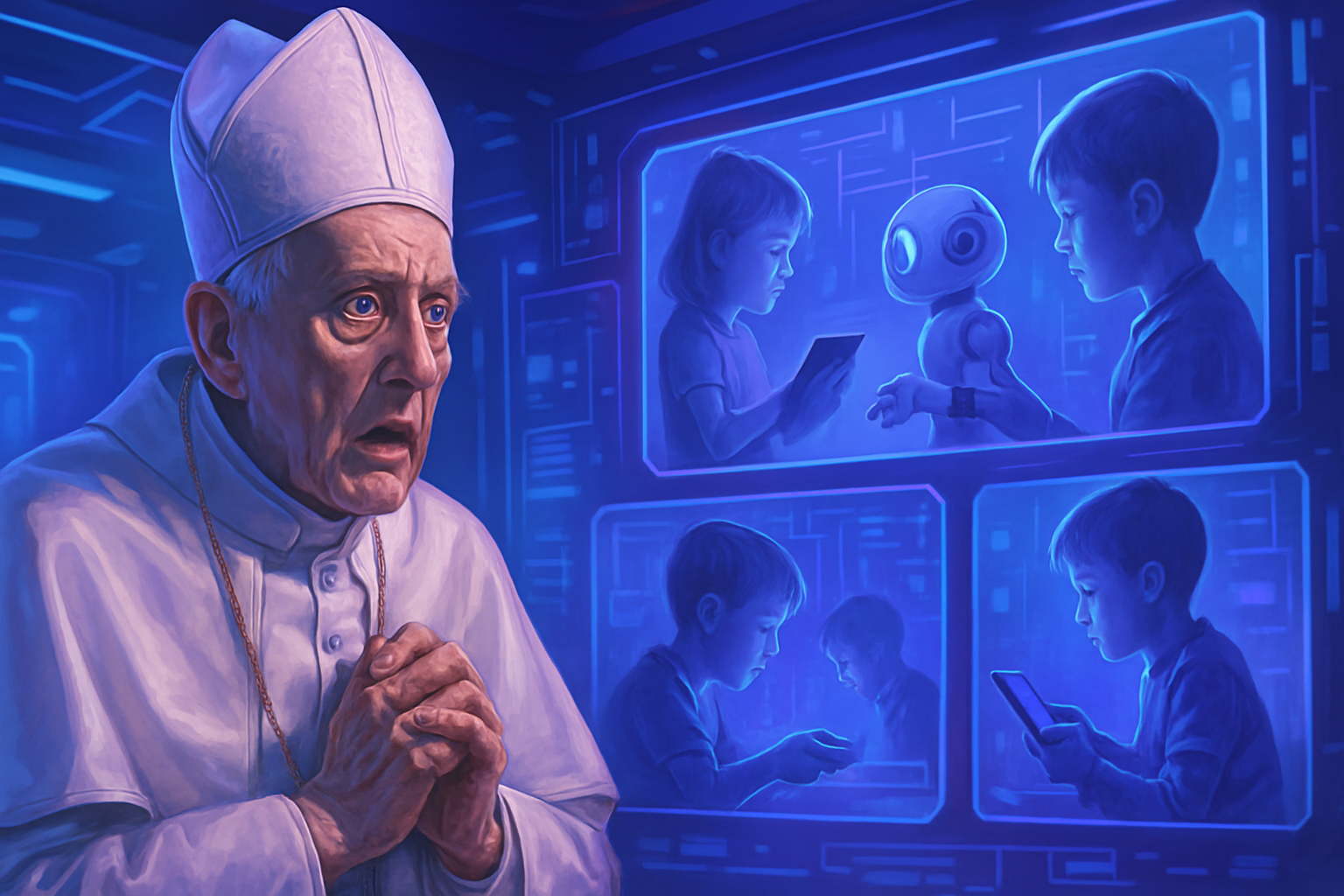Pope Leo and the Challenges of Artificial Intelligence
Pope Leo is concerned about the impact of AI on children. The repercussions of artificial intelligence disturb minds, especially those of the younger ones. The ethical and moral challenges posed by this technology raise numerous questions. He denounces two main problems: social isolation and dependencies. Children, immersed in a digital world, may lose essential skills. The role of parents becomes vital in this struggle. In light of these concerns, deep reflection on the future of our children is necessary.
Pope Leo is worried about the future of children
Pope Leo recently expressed his concern about the growing impact of artificial intelligence on children’s lives. In a modern world where digital technologies hold a prominent place, the way young people learn and interact is radically transforming. The rapid evolution of these tools raises essential questions about their influence on the social and emotional development of the youngest.
Risk of alienation and isolation
The exponential access to devices based on artificial intelligence could lead to alienation among children. These technologies, while useful, promote social isolation. Human interactions are replaced by digital exchanges, thus depriving children of valuable relational skills. Pope Leo emphasizes the importance of maintaining a balance between digital and physical interactions to ensure harmonious development.
Impact on education and creativity
The Pope addressed the pernicious effects of AI on education. Educational tools powered by artificial intelligence could reduce personal initiative. Young people, relying excessively on these solutions, may lose their ability to think critically and creatively. Concerns around this topic align with those raised by other key thinkers in the field, as indicated by several studies on the impact of AI in educational systems.
Preservation of humanity
In his statements, the Pope also insists on a preservation of humanity in the face of the ethical challenges posed by AI. Indeed, robots and intelligent systems should not replace fundamental human values. The way children are exposed to these technologies must be regulated to prevent a drift where technology would trump ethics and morality. Education must therefore incorporate essential values of solidarity and respect.
Role of parents and educators
Parents and educators play a crucial role in this transition. They must become active mediators between the child and technology. Raising awareness about both the benefits and the drawbacks of using AI is crucial. Encouraging open discussions about the use of these tools will help children develop a critical approach, essential for navigating an ultra-connected world.
Institutional and social responses
In the face of these challenges, institutions must engage in policies to regulate the use of artificial intelligence within schools and homes. Initiatives seek to promote healthy child development while integrating responsible technologies. Educational programs aimed at informing both children and parents about the dangers of unsupervised use are essential for a serene future.
Ethical and moral challenges
The Pope’s calls also highlight an ethical debate surrounding artificial intelligence. The responsibility of the creators of these tools questions the boundaries between technological progress and respect for humanity. The need for a solid ethical framework to guide the development of these technologies becomes evident, to preserve the very essence of our humanity.
Towards a conscious future
Pope Leo’s voice calls for collective reflection. Mobilizing actors from civil society, businesses, and governments is imperative. A future where AI coexists harmoniously with the desired human values is a goal to pursue. Debates on this topic will intensify, potentially paving the way for profound changes in our relationship with technology.
Frequently Asked Questions
What are Pope Leo’s main concerns regarding the impact of AI on children?
Pope Leo is primarily concerned about children’s exposure to inappropriate content, social isolation, and technological dependence caused by artificial intelligences.
How could AI affect the emotional development of children?
AI, by replacing human interactions, could hinder the development of emotional and social skills in children, making them less able to form authentic relationships.
What measures does Pope Leo propose to protect children from the impact of AI?
He advocates for strict regulation of technological tools aimed at children, along with educational initiatives to raise awareness among parents and educators about potential dangers.
How do the Pope’s concerns align with the worries of technology experts?
Technology experts share similar concerns regarding privacy, data security, and the psychological impact of technologies on young users.
What role do parents play in managing children’s use of AI?
Parents should monitor and limit the use of AI technologies while encouraging offline activities that promote their children’s healthy development.
How can religious institutions intervene in this debate about AI?
Religious institutions can promote ethical discussions about AI by offering workshops and resources for responsible technology use among young people.
What are the long-term impacts of AI on children’s education, according to Pope Leo?
Pope Leo fears that AI may erode traditional learning, replacing teaching methods that encourage critical thinking and creativity with automated and standardized solutions.
Does Pope Leo call for specific AI development for children?
Yes, he advocates for ethical AI development that takes into account children’s well-being, promoting technologies that assist them without exposing them to risks.
How can public policies integrate the Pope’s concerns regarding AI and children?
Public policies should include regulations on the development and use of AI to ensure that children’s rights are protected and that a balance between technology and human intervention is maintained.
Are there recent concrete examples of AI’s negative impact on children?
Studies have shown an increase in anxiety and depression issues among young AI users, as well as cases of addiction to applications that do not consider children’s well-being.






